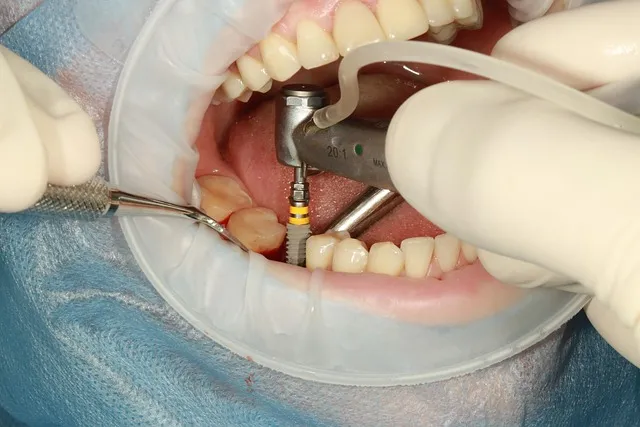Ever winced mid-sip of coffee and shrugged it off? Or felt that sudden stab when biting into ice cream and thought, “It’ll go away”? That’s how trouble starts, quietly. Sensitivity is not just a fleeting nuisance. It’s your teeth waving a red flag.
The kind you shouldn’t fold up and toss aside. If you experience ongoing discomfort, seeing a trusted Dentist Houston can help you identify the cause and prevent further complications. This is not about scaring you into a dental chair; it’s about keeping your smile and, frankly, your sanity intact.
What is Tooth Sensitivity?
The teeth aren’t meant to feel much beyond pressure and texture. When they do, it’s usually because the protective enamel has thinned or gums have crept back, revealing dentin. This dentin is a network of tiny tubules leading straight to the nerve. The moment hot soup, cold soda, or even a winter breeze touches them, it’s game over for comfort.
Sometimes, it’s a single tooth screaming for help. Other times, it’s a whole section of your mouth turning traitor. Either way, ignoring it lets damage deepen. And dentin doesn’t grow back on its own.
Common Causes of Tooth Sensitivity and Pain
Sensitivity doesn’t appear out of nowhere. It has triggers, often slow, creeping ones that don’t make noise until the damage is done.
1. Enamel Erosion
Acids in food, sugar in drinks, and teeth grinding, it’s a slow grind on your tooth armor. When enamel, dentin are exposed. That’s when cold air feels like a knife.
2. Gum Recession
Overbrushing, gum disease, or just years of wear can pull gums away from the tooth’s root. Roots have no enamel. They’re like bare wires, touch them and they spark.
3. Cavities and Tooth Decay
Small cavities seem harmless until they sink closer to the nerve. Then it’s a whole new level of pain.
4. Cracked or Chipped Teeth
Even a hairline fracture can make chewing a guessing game. You never know when the next bite will hurt.
5. Exposed Tooth Roots
From trauma, disease, or certain dental procedures, once the root’s out in the open, heat, cold, and pressure hit harder.
Why You Should Take Tooth Sensitivity Seriously
Look, the body rarely sends random pain signals for fun. Teeth especially. Sensitivity is often the first whisper of a much bigger problem.
1. Sensitivity as an Early Warning Sign
That faint sting? It could be enamel thinning, gum disease, or an early cavity. Addressing it now means avoiding long, expensive dental work later.
2. Risks of Ignoring the Discomfort
Neglect can push decay to the pulp, where infections brew. That’s when you’re talking root canals or extractions. And neither is a party.
3. How Minor Issues Can Turn into Major Problems
A mild twinge can snowball into swelling, throbbing pain, and even tooth loss. The clock doesn’t run backward here.
Professional Diagnosis and Treatment
A dentist’s eye can catch what home mirrors miss. Diagnosis isn’t guesswork; it's exams, X-rays, and targeted tests to find the root cause.
The Role of a Dental Examination
They look for more than cavities. Alignment issues, gum health, and enamel strength all matter.
Common Treatments for Sensitivity
|
Problem |
Possible Treatment |
|
Enamel erosion |
Fluoride varnish, remineralizing gels |
|
Gum recession |
Dental bonding, gum grafting |
|
Cavities |
Fillings, inlays, crowns |
|
Cracks |
Bonding, onlays, full crowns |
|
Severe pulp damage |
Root canal, crown placement |
Restorative Options for Advanced Damage
If decay or injury reaches the pulp, a root canal cleans it out and saves the tooth. Sometimes, the structure’s too far gone, then crowns or implants step in. These aren’t just cosmetic; they restore bite function and keep other teeth from shifting.
At-Home Care to Manage Sensitivity
Daily habits either protect or punish teeth. The right tools matter.
Use a soft-bristle toothbrush. Pair it with toothpaste made for sensitive teeth, which blocks pain signals over time. Brush in gentle circles to protect gums. Floss daily to stop plaque from sneaking between teeth.
Cut back on acidic foods and sugar bombs. Drink more water to wash away lingering acids. If you grind teeth, a nightguard is a must.
Preventing Future Tooth Sensitivity
Prevention isn’t magic; it’s maintenance.
- Regular Dental Checkups: Every six months keeps problems from settling in. Small repairs beat big fixes.
- Protective Dental Habits: Chewing ice, pen caps, or opening packaging with teeth is dental sabotage.
- Addressing Underlying Health Issues: Acid reflux erodes enamel. Dry mouth invites decay. Both need managing to protect teeth long-term.
Experience Personalized Dental Care in Houston
A good dentist should see more than a set of teeth. They notice the way you talk about your mornings, the habits you’ve picked up over the years, the small wince when you bite down. That’s the kind of attention you get at In Style Dental Group. No rushed poking around, no one-size-fits-all treatment.
Just careful work aimed at finding what’s wrong, fixing it properly, and making sure the rest of your mouth stays healthy. Whether it’s stubborn sensitivity, an unexpected chip, or just a routine check, the goal is the same: help you walk out with a smile that feels better than when you walked in.
Conclusion
Tooth sensitivity is a signal, not an inconvenience. Left unchecked, it can lead to treatments nobody enjoys, such as root canals, extractions, and implants. The earlier the cause is found, the better the outcome. So the next time your teeth flinch at a cold drink, pay attention. Your smile will thank you later.
Frequently Asked Questions
Why does cold water hurt my teeth?
Dentin will be exposed if a person with cold sensitivity suffers from some kind of erosion or excessive wear of the enamel, receding of the gums, or slight fractures.
Can sensitivity go away on its own?
It can, but only in some cases. If it’s caused by something short-term, like a bit of gum irritation, the discomfort might fade. But if the reason runs deeper, like enamel wear or gum recession, it usually sticks around until a dentist steps in.
Is using a straw helpful for sensitive teeth?
Often, yes. It keeps cold or acidic drinks from hitting the sore spots straight on, which can make sipping far less painful.
How long before sensitivity toothpaste works?
If it’s the right paste for your problem and you use it every day, some people notice a difference in a week or two. Others take longer; it depends on what’s behind the sensitivity.
Reviewed by







